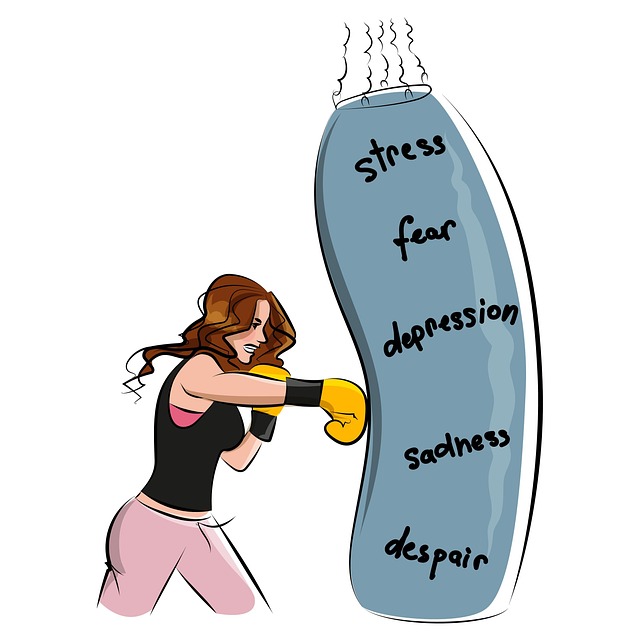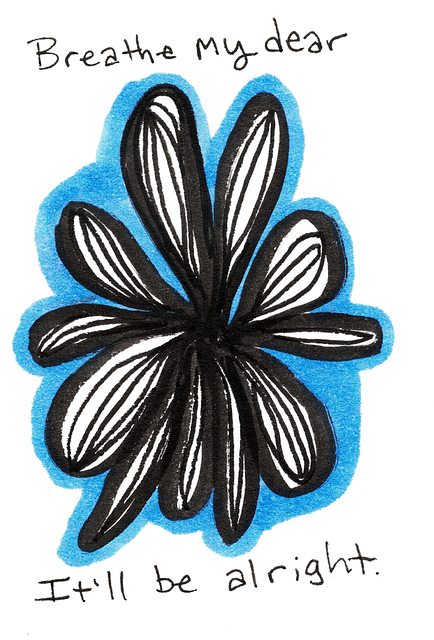Burnout among healthcare providers in demanding fields like Colorado Springs Child Abuse Therapy is a growing concern, requiring early recognition of signs such as exhaustion, detachment, and increased stress. Proactive measures including Compassion Cultivation, Mindfulness Meditation, and Inner Strength Development can combat burnout. Collaborative initiatives focusing on mental health support, team-building activities, counseling, and mindfulness training enhance job satisfaction, improve retention, and ensure professionals maintain emotional stability to offer compassionate care effectively. Continuous learning through workshops, webinars, advanced training, and stress management techniques like journaling are crucial for long-term wellness and resilience in Colorado Springs Child Abuse Therapy.
“In the demanding landscape of healthcare, burnout among providers is a pressing issue, yet preventable with proactive strategies. This article guides you through navigating the signs and symptoms of burnout, emphasizing the pivotal role of supportive work environments in Colorado Springs child abuse therapy settings. We explore effective prevention techniques and highlight professional development, self-care practices for sustained well-being. By implementing these strategies, healthcare providers can foster resilience, enhance patient care, and mitigate the risk of burnout.”
- Recognizing Burnout in Healthcare Providers: Signs and Symptoms
- Creating a Supportive Work Environment: Strategies for Prevention
- Professional Development and Self-Care Practices for Sustained Well-being
Recognizing Burnout in Healthcare Providers: Signs and Symptoms

Burnout among healthcare providers is a growing concern, especially considering the demanding nature of their work. Recognizing the signs early is crucial for prevention and supporting these professionals’ well-being. Healthcare providers may exhibit various symptoms of burnout, which can manifest physically, emotionally, and cognitively. Exhaustion and increased stress levels are often the initial indicators, leading to decreased productivity and potential errors in patient care.
Some key signs include a sense of detachment from work and patients, reduced compassion, and a general feeling of being overwhelmed. Changes in behavior such as irritability, cynicism, or withdrawal from colleagues can also signal burnout. Additionally, physical symptoms like chronic fatigue, headaches, and sleep disturbances may accompany these emotional and psychological changes. Addressing burnout proactively is essential for the well-being of healthcare providers, ensuring they can continue offering compassionate care, particularly in challenging fields like Colorado Springs Child Abuse Therapy, where resilience and emotional stability are paramount. Practices such as Compassion Cultivation, Mindfulness Meditation, and Inner Strength Development have been shown to effectively combat these issues, fostering a healthier and more sustainable work environment.
Creating a Supportive Work Environment: Strategies for Prevention

In the dynamic landscape of healthcare, preventing burnout among providers is a symphony of effort that begins with creating a supportive work environment. Colorado Springs Child Abuse Therapy clinics can play a pivotal role in this by fostering an atmosphere that prioritizes mental health and well-being. One effective strategy is implementing regular team-building activities, which strengthen bonds among colleagues and promote empathy building strategies essential for navigating the emotional demands of the job. These activities should be inclusive and diverse, ensuring every team member feels valued and connected.
Additionally, providing resources for coping skills development is crucial. This can include access to counseling services, mindfulness workshops, or stress management training. By equipping healthcare providers with the necessary tools to cope with work-related pressures, these initiatives contribute to Burnout Prevention Strategies for Healthcare Providers, ultimately enhancing job satisfaction and retention rates. A supportive environment that encourages open communication and acknowledges the unique challenges faced by professionals in Colorado Springs Child Abuse Therapy can significantly mitigate burnout risks.
Professional Development and Self-Care Practices for Sustained Well-being

In the pursuit of sustained well-being, healthcare providers must prioritize professional development and self-care practices. Continuous learning through workshops, webinars, and advanced training programs equips them with new skills and knowledge, fostering a sense of purpose and engagement. Additionally, incorporating stress management techniques such as mindfulness meditation, deep breathing exercises, or even Colorado Springs Child Abuse Therapy services can significantly reduce burnout risks by promoting mental wellness.
Journaling exercises have emerged as powerful tools for enhancing self-awareness and resilience building. Regularly documenting thoughts, feelings, and experiences can serve as a form of therapeutic release, providing guidance towards healthier coping mechanisms. By dedicating time for self-care and incorporating these practices into their routines, healthcare providers can effectively navigate the challenges of their professions while preserving their well-being.
Burnout among healthcare providers is a pressing issue, but through recognizing signs early, fostering supportive work environments, and adopting effective self-care practices, it can be mitigated. By implementing these strategies, healthcare professionals in Colorado Springs—from doctors to child abuse therapists—can improve their well-being and better serve their communities. Investing in prevention now ensures a more resilient and sustainable healthcare workforce for the future.














